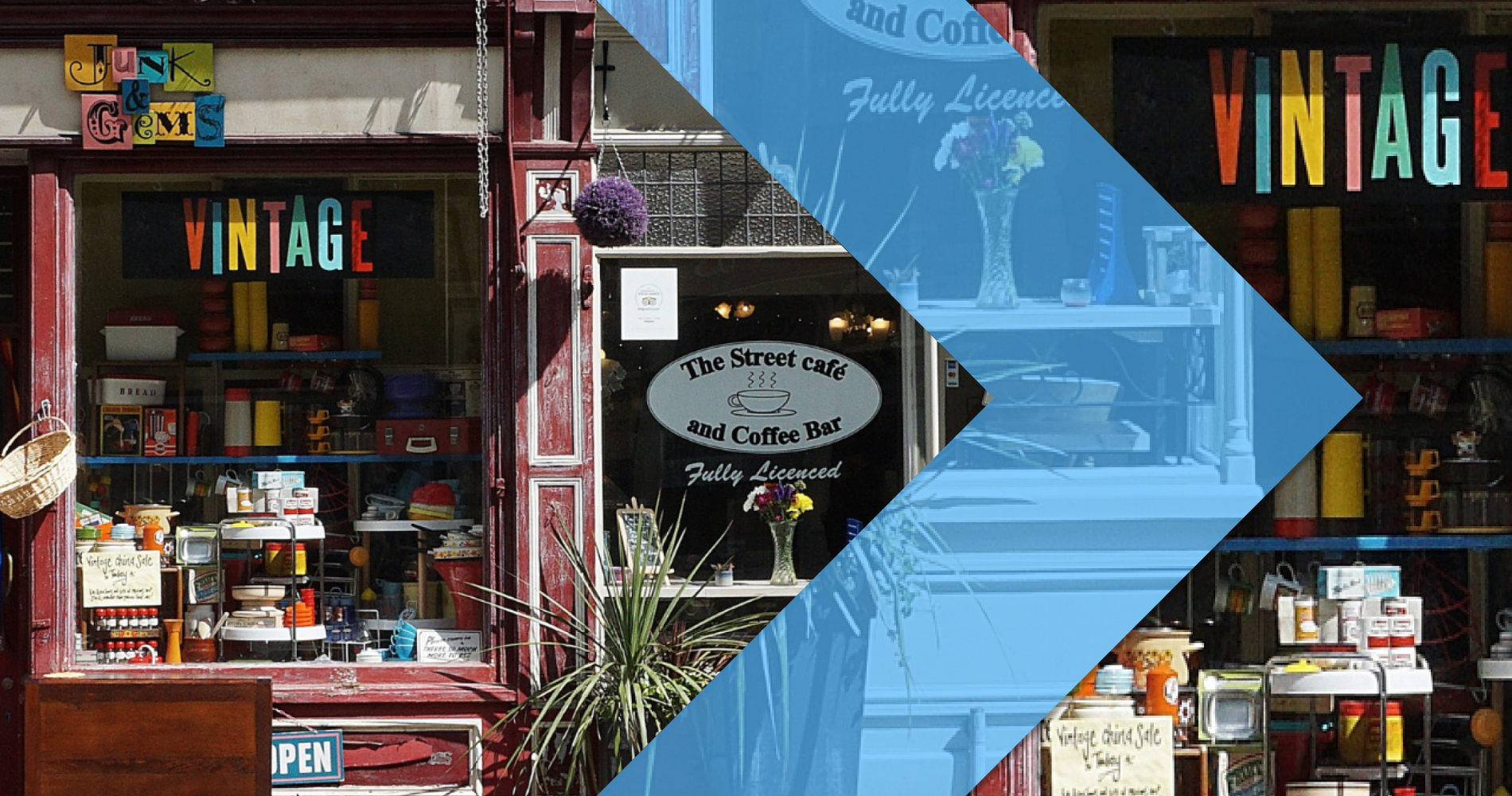There are 415 counties across the nation that qualify as persistently-poor, and in these areas, the average poverty rate is 26%, compared to 11% in the Midwest, 8% in the West, and just 2% in the Northeast. Small businesses are a critical component of an equitably thriving community, providing several essential benefits that increase districts’ livability and vitality, especially in historically divested neighborhoods that have been void of the resources and policies that allow for expansion and advancement. Supporting small business stamina and growth can spark a virtuous cycle of revitalization, bringing resources a district needs to incentivize people to stay, thus creating an environment ripe for small business longevity.
To set this in motion, strategies for supporting small enterprise growth must go far beyond creating more equitable access to funding, grants, and other financial resources. Approaches must be community-centered and holistic, taking into account all the elements that make a locality a place where small businesses and their patrons can thrive. Through their Executive Fellowship Program, FUSE is working in cities across the U.S., like Jackson and Los Angeles, to jump-start the momentum for revitalization.
In the fall of 2023, the Jackson Redevelopment Authority (JRA) in Jackson, Mississippi, partnered with FUSE to promote equitable social and economic growth through a comprehensive urban renewal approach that includes housing, business development, infrastructure, and public spaces. A key focus is Farish Street, historically the largest economically independent African American community in Mississippi, which has suffered a decline since the years of white flight, followed by decades of divestment and many failed restoration efforts. The JRA’s unique, holistic approach to revitalization focuses on three key aspects. First, the area’s redevelopment plans align with the community’s vision for a lively entertainment district. Second, they welcome diverse small businesses to the area. Third, they gradually improve the street using a combination of private and public funds. This balanced approach meets community needs, attracts business interests, and ensures sustainable development.
One project that exemplifies the holistic, balanced strategy the JRA is taking is the plan to develop more public green spaces. Along with 2 C Mississippi, which focuses on climate mitigation and education, the JRA is working to turn three parcels of land into an urban forest with a stage for entertainment use. Not only does this plan respect the community’s request for bringing entertainment to Farish Street, public green spaces also encourage a host of health, climate, and socio-economic benefits that are invaluable for small businesses. Green areas encourage people to walk and congregate outdoors, boosting foot traffic and shopping and dining at local businesses.
This initiative between the JRA and Jackson, catalyzed by the FUSE Executive Fellowship aims to bring together all the essential parts that allow a revitalization plan to succeed – bringing existing projects and programs together around community-identified common goals, understanding and solving for resource gaps, securing partnerships and funding, boosting operational capacity, and setting up the JRA with a full-spectrum game plan for continued and long-lasting redevelopment. This work is sure to continue as Yolanda R. Owens, the FUSE Executive Fellow leading the partnership, will join the JRA as COO once the fellowship concludes.
In Los Angeles, small business revitalization efforts have been county-wide after historic closures due to the COVID-19 pandemic. Small businesses in the area experienced one of the highest loss rates, with 15,000 small business closures across L.A. County. Businesses owned by people of color and women were particularly affected, exacerbating the already prevalent racial and gender inequalities —in 2020 alone, there was a 41% decrease in active Black business owners, a 36% decline in immigrant-owned businesses, and a 25% drop in women business owners.
FUSE partnered with Los Angeles BusinessSource Centers in 2021 to build up capacity to provide small businesses, particularly those owned by women and people of color, with the technical and programmatic resources they need to thrive. The BusinessSource Centers act as a one-stop shop for small businesses, assisting with everything from faster and more efficient permit processing to increasing capacity in departments like Power and Water to work with owners directly on upgrading their electric systems and working with the Mayor’s office on deadline extensions and helpful programs.
The focus on businesses owned by people of color and women taps into the virtuous cycle of restoring communities as 1) these businesses tend to reinvest more of their earnings back into the community through hiring local residents, donating to local charities, and investing in infrastructure and 2) they play a crucial role in encouraging inclusive economic growth and reducing the wealth gap, supporting local suppliers and providing opportunities for people of color and women.
FUSE Executive Fellowships spark the momentum for initiatives that have the potential to restore cities and towns through virtuous cycles of revitalization successfully. When centering the community, they help set up the pieces like community feedback processes, crucial partnerships with nonprofits that work with the community, identifying gaps in resources, and understanding what the community wants. In terms of small business support, they help cities identify what micro-entrepreneurs need regarding training, zoning, permitting, or fundamental partnerships such as distributors and suppliers. Learn more about how you can get involved at FUSE.org.

 "
"
